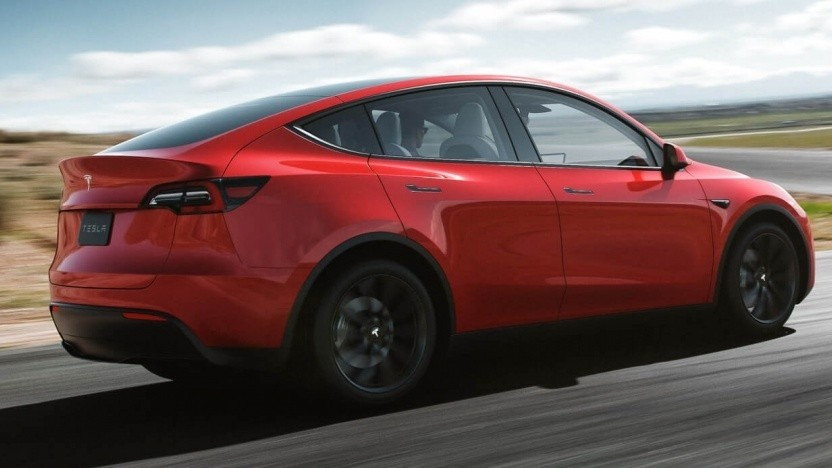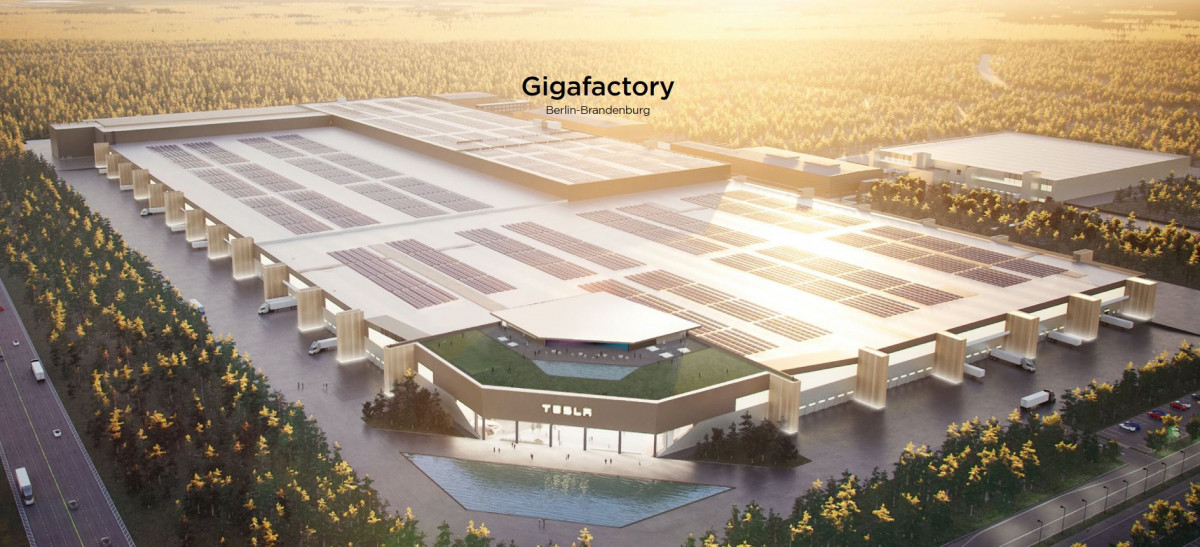Latest News
Tesla's Berlin gigafactory will accelerate shift to electric cars
April 22nd 2021
By Clean Energy Wire
Tesla's surprise announcement that it will build its fourth gigafactory near Berlin hit Germany's car industry like a bombshell. The company's flamboyant CEO, Elon Musk, casually dropped the news in late 2019 on a stage in Berlin after being awarded a "Golden Steering Wheel" award for the Tesla Model 3. "I actually have an announcement, which I think will be hopefully well received. We've decided to put the Tesla Gigafactory Europe in the Berlin area," Musk told a gasping audience, which included top managers from Germany's carmakers, who were described as shell-shocked. "I come to Berlin a lot," Musk told the crowd. "Berlin rocks!"
"The most advanced high-volume e-car production plant in the world"
 The Berlin plant will be Tesla's first major production facility in Europe, and its fourth so-called gigafactory – others already operate in Nevada, New York and Shanghai. The term gigafactory was coined by Musk to describe his company's plans for the giant battery factory in Nevada – it's basically a marketing phrase that has taken on a life of its own.
The Berlin plant will be Tesla's first major production facility in Europe, and its fourth so-called gigafactory – others already operate in Nevada, New York and Shanghai. The term gigafactory was coined by Musk to describe his company's plans for the giant battery factory in Nevada – it's basically a marketing phrase that has taken on a life of its own.
Official Tesla communication on the project is relatively sparse, but it says that "Gigafactory Berlin-Brandenburg will be the most advanced high-volume electric vehicle production plant in the world."
The first cars are expected to roll off the production line in the summer of 2021, starting with around 3,000 employees. Tesla still plans to open the factory in July despite delays, industry sources told newswire dpa in mid-March. The California-based company says it will launch production with the Model Y, a fully electric, mid-size SUV. Once the initial expansion phase is complete, the factory is set to employ up to 12,000 people, who will produce 500,000 cars per year for the European market, according to Tesla plans. The company aims to invest up to 4 billion euros in the project, according to media reports.
To put these production figures into perspective: The Wolfsburg Volkswagen Factory -- the group's headquarters and "the world's largest single car manufacturing complex" with a surface area of 6.5 km2 --produced just over 700,000 cars in 2018, according to the company. All German carmakers combined made 428,000 electric vehicles in 2020 in the country (fully battery electric and plug-in hybrids combined), and exported 62 percent of them.
World's largest battery factory?
The Tesla Berlin car plant's primary manufacturing areas include the press shop, foundry, body shop, paint shop, powertrain manufacturing, seat manufacturing and final assembly. Tesla also wants to turn the site into the world's largest battery cell production plant. CEO Musk said an annual production capacity of up to 100 gigawatt hours (GWh) was possible, "and then possibly" increase to 200 or 250 GWh. A plant with an annual capacity of 100 GWh alone could produce enough batteries for 1.3 million model Y vehicles with a 75 KWh battery.
Tesla plans to make new "4680 cells" measuring 80 by 46 mm (hence the name) with a higher energy density at the Berlin plant. In January, the EU paved the way for state aid for the battery project. Battery production could start in roughly two years, according to Brandenburg economy minister Jörg Steinbach, who was instrumental in bringing Tesla to the region.
The site
 The site is located in the sparsely populated and largely forested municipality of Grünheide, around 35 kilometres south-east of Berlin, where Tesla bought a plot of land measuring about 3 km2 that had been reserved for an industry project for around 20 years. BMW considered building a car plant at the same site two decades ago, but eventually opted for Leipzig instead.
The site is located in the sparsely populated and largely forested municipality of Grünheide, around 35 kilometres south-east of Berlin, where Tesla bought a plot of land measuring about 3 km2 that had been reserved for an industry project for around 20 years. BMW considered building a car plant at the same site two decades ago, but eventually opted for Leipzig instead.
To lure employees to the site, Tesla stresses its "natural surroundings" close to the "vibrant city of Berlin."
Tesla says convenient accessibility will be ensured by an extensive infrastructure of bicycle ways, roads and highways, and direct train connections. The site is located very close to an autobahn and will have a dedicated exit. The construction of a plant railway station for freight logistics is also planned to achieve the highest possible share of rail in freight traffic, according to the Brandenburg state government. Tesla is also considering using additional space in a nearby logistics centre. The company plans to establish an engineering and design centre in Berlin itself. Berlin's new airport is around 35 kilometres away.
Property prices in the area have already shot up as investors are planning to build new houses for Tesla employees. But some nearby localities refuse to have new properties built.
Obtain more information about Berlin and Investment opportunities in Germany on our website: www.berlinestates.co or contact us directly +357 25754514
Read the full article by Clean Energy Wire